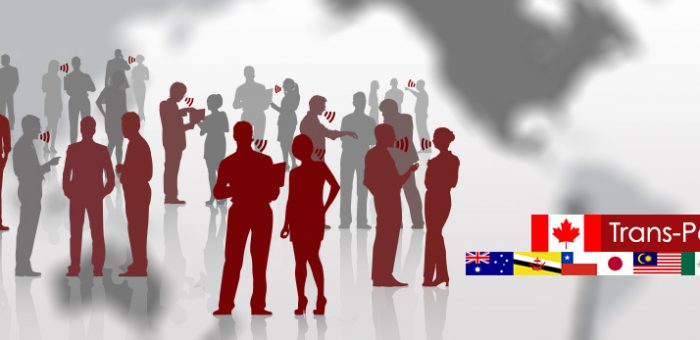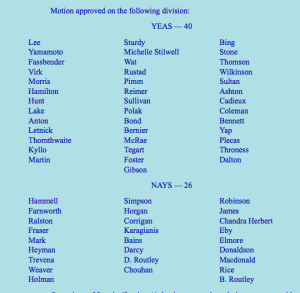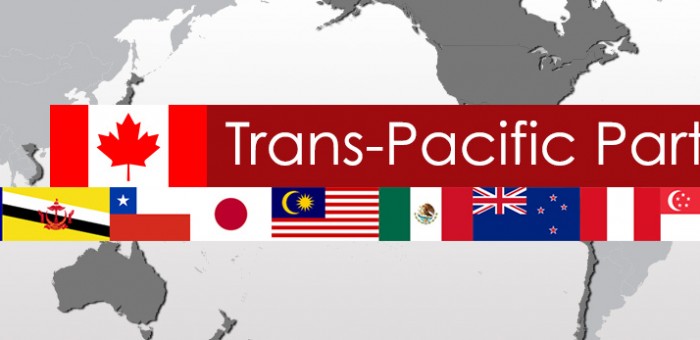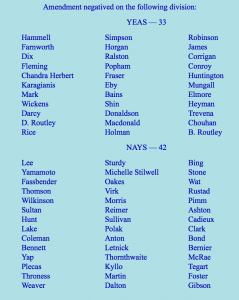Issues & Community Blog - Andrew Weaver: A Climate for Hope - Page 123
Should we Lower the Voting Age to 16? What do you think?
Background
One of the fundamental issues that motivated me to get into politics was that in my view, far too many of our political leaders are shortsighted in their decision-making. That is, too often political opportunism and the quest for re-election are the determining factors and primary motivators in a prevailing short-sighted and short-term political agenda. But that does not serve society well in the long run.
Let me give you three concrete examples.
- Recently, our premier suggested that the solution to the underfunding of public education lay with growing the economy. Fundamentally the B.C. Liberals have it backwards. A quality education is not the luxury of a strong economy. A quality public-education system is what builds a strong economy. Our society has thrived through innovation precisely because of the emphasis we have placed on education. The doctors, engineers, nurses and skilled labour of tomorrow — those who will take care of us as we age — are in the school system today. Surely it’s in all of our long term interests to ensure substantive short term investment in the society of tomorrow.
 We’ve all heard of the Dr. Suess book The Lorax, in which the Once-ler destroys the Truffula forest in a short-sighted quest to produce Thneed garments (“A-fine-something-that-all-people need”). In the end, with the forest gone, the Once-ler’s wealth and prosperity collapses and he lives a depressed life of solitude. The Lorax, published in 1971, beautifully articulates the result of short-sighted and unsustainable resource management. A Loraxian approach to resource management does not protect our renewable resources, natural environment or build public support. Yet this is the approach we are far too often taking in British Columbia, or frankly more broadly in Canada as a whole. It’s a bit like being given a great big inheritance, using that inheritance to throw a huge party, and then waking up the next day broke, with a wicked hangover and asking oneself “Now What?”.
We’ve all heard of the Dr. Suess book The Lorax, in which the Once-ler destroys the Truffula forest in a short-sighted quest to produce Thneed garments (“A-fine-something-that-all-people need”). In the end, with the forest gone, the Once-ler’s wealth and prosperity collapses and he lives a depressed life of solitude. The Lorax, published in 1971, beautifully articulates the result of short-sighted and unsustainable resource management. A Loraxian approach to resource management does not protect our renewable resources, natural environment or build public support. Yet this is the approach we are far too often taking in British Columbia, or frankly more broadly in Canada as a whole. It’s a bit like being given a great big inheritance, using that inheritance to throw a huge party, and then waking up the next day broke, with a wicked hangover and asking oneself “Now What?”.- Right now, it is in every person, in every household, in every municipality, in every city, in every province, in every country in the world’s best interest to do precisely nothing about global warming from a traditional cost-benefit point of view. That is because the costs of action are borne by the individual and the costs of inaction are distributed over 7 billion people in the next generation. Global warming is literally a textbook example of the Tragedy of the Commons with the atmosphere being the shared natural resource.The decisions we make today as to whether or not we put an increasing price on emissions will have profound consequences on the climate, natural and built environment, biodiversity and availability of water over the next century. Yet those making the decisions today will not have to live the consequences of the decisions they are making.
To summarize, most of the grand challenges of our time require decision-makers to look beyond the next election cycle and instead reflect upon the long-term consequences of their decisions. Dealing with poverty, homelessness and the increasing income disparity between the wealthy and the poor, or sustainable resource development, global warming and other environmental issues, or envisioning ways and means of moving towards more steady-state, diversified economies that aren’t subject to wild boom and bust cycles all require us to reflect upon the importance of intergenerational equity. This leads me to pose the following question:
Should the present generation also consider future generations in
the fiscal, social and environmental decisions we make?
I happen to think we do.
Yet herein lies the fundamental problem. Today’s decision-makers don’t have to live the long-term consequences of the decisions they make and those who do are either not allowed to, or are not participating in, our democratic institutions.
 As shown in the figure above, upwards of 70% of seniors over the age of 65 have voted in our recent federal elections. Only around 40% of youth between the ages of 18-24 voted (age-related demographic data likely won’t be available until May for the 2015 federal election). Is it any surprise that many of our political leaders target their promises and messaging to a demographic that they know will vote. I’d wager that when the results become available, we’ll see that the youth participation rose in the 2015 election as it was clear that Prime Minister Trudeau and his Liberal team were discussing values that mattered to the youth of today.
As shown in the figure above, upwards of 70% of seniors over the age of 65 have voted in our recent federal elections. Only around 40% of youth between the ages of 18-24 voted (age-related demographic data likely won’t be available until May for the 2015 federal election). Is it any surprise that many of our political leaders target their promises and messaging to a demographic that they know will vote. I’d wager that when the results become available, we’ll see that the youth participation rose in the 2015 election as it was clear that Prime Minister Trudeau and his Liberal team were discussing values that mattered to the youth of today.
Voting Age History
The voting age was not always 18 in British Columbia and Canada. In fact, it wasn’t until 1970 that the Canada Elections Act was amended to drop the voting age from 21 to 18. In British Columbia we made the jump in two steps. First, in 1952 we dropped the voting age from 21 to 19, but it wasn’t until 1992 that we made the subsequent change to lower the age to 18.
 Around the world more and more jurisdictions are openly discussing the notion of dropping the voting age to 16. In fact, a growing number have actually done so. The most recent and notable example of this occurred in Scotland.
Around the world more and more jurisdictions are openly discussing the notion of dropping the voting age to 16. In fact, a growing number have actually done so. The most recent and notable example of this occurred in Scotland.
Scotland experimented by lowering the voting age in their September 18, 2014 independence referendum. They viewed it as being so successful that they subsequently permanently dropped the voting age to 16 in all future Scottish Parliament and local government elections.
The voting age in Brazil has been 16 since 1988; Austria changed its voting age to 16 in 2007; Argentina dropped the voting age to 16 in 2012. These are but a few of the growing number of jurisdictions that are either considering or already have dropped the voting age to 16 around the world.
The Justification
As I noted above, there has been a disturbing trend of low youth voter turnout in Canadian elections. The non-profit US-based NGO Fair Vote has noted that there is empirical evidence to suggest that “the earlier in life a voter casts their first ballot, the more likely they are to develop voting as a habit.” So while youth turnout might remain low, there is evidence to suggest that there will be increased participation. What’s more, each and every student in the province of British Columbia is required to take Social Studies 11 (or Civic Studies 11 or BC First Nation Studies 12) to fulfill their Social Studies graduation requirement. Unit 1 of the four-unit Social Studies curriculum in the 2005 Integrated Resource package is Politics and Government. While not yet finalized, Politics and Government remains as Unit 1 in the draft 2015 Integrated Resource package.
 Social Studies 11 is a class taken when students are typically sixteen years old. It is an ideal time to engage students on the history and importance of voting. And this sort of experiential learning, wherein direct experience is inserted into the learning environment, has a rich history of validation since the early work of John Dewey in the 1930s. So giving students the ability to vote at the time they are learning about its importance, and knowing that the earlier a voter casts a first ballot, the more likely they are to be lifelong voter, almost certainly will lead to greater voter participation.
Social Studies 11 is a class taken when students are typically sixteen years old. It is an ideal time to engage students on the history and importance of voting. And this sort of experiential learning, wherein direct experience is inserted into the learning environment, has a rich history of validation since the early work of John Dewey in the 1930s. So giving students the ability to vote at the time they are learning about its importance, and knowing that the earlier a voter casts a first ballot, the more likely they are to be lifelong voter, almost certainly will lead to greater voter participation.
As I noted earlier, today’s decision-makers don’t have to live the long-term consequences of the decisions they make and those who do are either not allowed to or are not participating in our democratic institutions. We can do something about the former by reducing the voter age to 16. After all, the youth of day are the leaders of tomorrow and they should have a say in the direction we are heading as they will inherit what we leave them in the years ahead.
Having spent many years as an educator and having presented to, or engaged in discussions with, high school students and classes across British Columbia on numerous occasions, I find it difficult to accept an argument that students are not mature enough of informed enough at age 16 to vote. Students today have access to information like never before; they are tech savvy and they know where to go to get information if they need it.
And of course, there are numerous other arguments, one of the strongest of which is that many youth work and so pay taxes. Taxation without representation is generally counter to our democratic principles. That is, youth must pay the taxes but they are not allowed to vote for those who put in place laws that create them. Other compelling reasons include the fact that we already trust youth to drive at 16, they can get married at 16 (with parents’ permission) and you can drop out of school at 16. These are all pretty major life responsibilities that are entrusted upon our youth.
What do you think?
So tell me what you think? Should we lower the voter age to 16 in the province of British Columbia? There is a trend happening worldwide in the area. Should we lead the way or not? And if not, why not? If so, why?
Following up with the Animal Liability Act
Since introducing my private member’s bill Bill M212 — Animal Liability Act, 2016 earlier this month I have had the opportunity to meet with a number of individuals and my office has been in contact with various organizations and concerned constituents.
There has been overwhelming support for the notion that BC needs some sort of legislation to encourage responsible pet ownership. Dog attacks happen every day and for the most part it is from irresponsible owners. To begin the conversation as to how we can more effectively deal with irresponsible pet owners I introduced a bill in the Legislature on April 6.
We’ve received numerous emails and comments on our proposed bill and while virtually all the correspondence is from people supporting the bill, a number raised some important concerns.
One concern has been around provoked attacks. Obviously pet owners may feel concern that they would be held liable if their dog was provoked into attacking someone. While ultimate liability would still rest with the owner, the bill I introduced clearly states that the actions of the plaintiff must factor into any decision. Section 2 of the bill I introduced states, “the court shall reduce the damages awarded in proportion to the degree, if any, to which the fault or negligence of the plaintiff caused or contributed to the harm.”
Simply put, this does not, nor is it intended to, put full liability on pet owners if their dog acts out of self defence or in response to aggression. The context that led to a bite is as important as the fact that a bite took place.
 There are an untold number of circumstances that could occur and I think it is preferable to allow the court to figure out the degree of liability based on the circumstance.
There are an untold number of circumstances that could occur and I think it is preferable to allow the court to figure out the degree of liability based on the circumstance.
As with any piece of legislation, the regulations behind this bill are integral to its operation. The bill itself assigns liability but should also be considered enabling. For example, regulations could provide more context around defining important terms such as an “unprovoked attack” or whether specially-trained dogs could limit their owners liability (such as guide dogs for instance). Regulations could change the rules around pet ownership, and there is ample room to have the regulations address dog-training programs to encourage more responsible ownership. There could also be increased penalties for repeated offenses of irresponsible pet owners.
Indeed, regulations, if developed properly with consultation and forethought, could address many if not all of the gaps in this legislation. Pretty much every piece of legislation introduced has a number of regulations that are behind it, and if enacted this bill would be no different.
One final concern that has arisen is how this legislation might affect the adoption of rescue animals. Some might see this bill as increasing the barriers to adopting an animal, however, I think it ensures that animals that need additional support and help are going to families that understand their responsibilities and are prepared to provide what is needed. In my view, this is a positive step as I don’t think it is wise for irresponsible pet owners to adopt rescue animals.
Ultimately I brought this issue forward because there is a gap in our legislative framework in BC regarding pets and pet ownership liability. Other provinces have addressed it, and while I don’t think it is wise to follow Ontario’s lead in banning certain breeds, we do need something to ensure that pet owners are responsible for the behaviour of their pets and that there are stiff penalties for not being a responsible pet owner.
Since introducing the bill my office has reached out to a number of organizations and we have been in contact with the Minister of Community, Sport and Cultural Development as a way to move this issue forward.
I welcome discussion on this topic and I am hopeful that the interest that this bill has generated gives the government the push it needs to start working towards a solution for British Columbians.
The Debate Continues on the Trans Pacific Partnership Agreement
The debate on the cynical BC Liberal motion continued again today. The motion stated:
Be it resolved that this House, acknowledging the importance of diversifying trade to create jobs for British Columbians, supports the Trans-Pacific Partnership because: the Trans-Pacific Partnership removes trade barriers and provides preferential market access for B.C. goods and services from all sectors including forest products, agrifoods, technology, fish and seafood, minerals and industrial goods, and through the transition support will be available to our supply-managed industries; the Trans-Pacific Partnership provides more access for service providers in professional, environmental, and research and development fields; and, ultimately, the Trans-Pacific Partnership will increase investment and create new jobs and opportunities for many British Columbians.
Once more I rose to speak strongly against the motion. As I noted yesterday when I spoke against the proposed BC NDP Amendment, the TPP will have dire consequences for our technology sector – one of British Columbians greatest economic opportunities. Today I continued on that theme and also took the opportunity to rebut some of the more outlandish claims from cheerleaders of the motion within the Liberal caucus. The most egregious of these was from the Minister of Agriculture who said this:
“As history has shown us through the decades, through the millennia, at some point in the future, mankind will find some way of causing another world war, or some pestilence will hit us or something will happen where we’ll see our borders close. We want to make sure that we continue to grow agrifoods right here in B.C. so that if ever — and I hope it never comes — that day comes, we’ll be able to be even stronger in feeding ourselves.”
You literally cannot make this stuff up. The Minister of Agriculture is using a food security argument to justify the TPP in case of world war or a global pestilence outbreak. As I argue between the 2:00 and 3:00 minute mark, the Minister has it entirely backwards.
Below I reproduce both the text and video of my speech. The motion passed because of the Liberal majority.
Text of Speech
A. Weaver: It gives me great pleasure to rise not to speak in support but to speak in opposition to the motion we have before us.
As I mentioned yesterday, the TPP is fundamentally bad for British Columbians. The TPP was signed by 12 Pacific nations — Australia, Brunei Darussalam, Canada, Chile, Japan, Malaysia, Mexico, New Zealand, Peru, United States, Singapore and Vietnam — in New Zealand on February 3, 2016.
We heard a lot about trade agreements with China and South Korea yesterday from members opposite, but this has nothing to do with trade agreements with China, South Korea, India or others, despite what members opposite might think.
That takes us to the point — the point that this motion was brought to us and the Legislature before the text of the TPP was even available. How cynical is that? How cynical is it for a government to make its mind up on an agreement that it has not even got the text of to determine whether or not they support the agreement? It’s very cynical.
We know, in this Legislature, the singular reason that they’re bringing the motion forward now is because they’re trying to make hay on the fact the federal NDP passed support for looking at the Leap Manifesto. It was rather an odd decision, mind you, but they passed support to go forward with that and study it for two years.
This is a good opportunity the government can take to actually make hay by trying to make the official opposition look bad in a substanceless debate — a debate that stoops to such levels as discussing what will happen to food security when we have outbreaks of disease and pestilence and world war.
Can you believe this — that the Minister of Agriculture is arguing for TPP; that we need to enter into free trade agreements, which have indemnity clauses in there that protect the rights of multi-national corporations over the rights of the British Columbians and Canadians; that we, somehow, should sign this agreement in case world war breaks out?
You can’t make this stuff up. Not only does it not make sense, but if this agreement were signed and war broke out, according to the agreement, we’d be liable to ensure that food still went elsewhere. It’s exactly the opposite, which shows me, clearly, how intently and intensely members of government have actually looked at the agreement. I don’t think they have. Well, I know that they haven’t.
I’m willing to wager that if there is one person in this Legislature, in this House, who has actually read the agreement, it is the member for Surrey-Whalley. Nobody else, including me, has read all 6,000 pages. I’ve read a bunch of the pages, but not 6,000.
Interjections.
A. Weaver: Again, identified just there in the heckle is someone, or two, from members opposite who said: “Are you sure you read 6,000?” That’s after I just said: “I didn’t read all 6,000.” This shows exactly the level of understanding this government has of the actual document before us.
The TPP, as I outlined, contains investor-state provisions that give foreign corporations — an investor, so-called — the ability to sue Canadian government — the so-called state — in secret tribunals over any legislation which would hurt their profits further, such as regulations defending human health, labour safety or the environment. So in case we have world war breaking out, and we want to protect our agrifood industry for local consumption, in fact we can’t, despite what the Minister of Agriculture might say.
We have some high-profile cases under NAFTA, an agreement where rulings have gone against Canada because of unfair restrictions. I could, for example, talk about the arbitration panel ruling against Canada after a U.S. company argued a joint federal-provincial environmental review board decision to disallow a quarry in the small fishing community of Digby Neck, Nova Scotia, imposed unfair trade sanctions. The U.S. company is now seeking $300 million in damages.
We’ve got another. A NAFTA panel recently ordered Canada to pay Exxon Mobile Corporation and Murphy Oil $17.3 million after Newfoundland and Labrador required offshore oil producers to have money allocated to research. We’ve got TransCanada, a Canadian example, behind Keystone XL, launching a $15 billion lawsuit against the U.S. under NAFTA.
In and of itself, these are examples, but what we have under NAFTA, of course, is the ability as a nation to withdraw from NAFTA, with appropriate notice. With TPP, we’re signing away our life and future generations, as the substance of exit clauses is unknown
I come back to the Tufts University report that I cited yesterday. Why I thought that was important to come back to is I want to touch upon the conclusions of this report, which fundamentally underline why this is a bad agreement for British Columbia. It says as follows: “In the main existing assessments, the TPP is projected to generate small gains in GDP in most participating economies. However, these projections are based on an economic model that assumes full employment and invariant income distribution, thereby excluding, from the outset, some of the most serious risks of trade liberalization.”
As I mentioned, yesterday I gave an example of the assumption using cars. The fact that this model that was used to make one or two…. The models that the government is relying on assumes full employment. Full employment is a poor assumption in a trade deal that’s talking about the creation of jobs. In fact, when more realistic assumptions are used, the TPP is projected to cost 58,000 job losses in Canada — not job gains, job losses. Full employment is not guaranteed, because the company will not just pay workers lower and lower amounts, they’ll move elsewhere and shut the factory down.
The article’s concluding remarks continue. “Projecting the effects of the TPP with a different economic model, based on the realistic assumptions about economic adjustment and income distribution, leads to different results. We project that the TPP will lead to contraction of the GDP in the United States and in Japan and negligible income gains in other countries.” It’s one of the reasons why the U.S. is actually talking about not ratifying this agreement. They’re talking about not ratifying this agreement because the agreement actually will lead to a contraction in U.S. GDP.
“We also project job losses,” it says, “and higher inequality in all participating economies.” That includes B.C. “In the fact of negligible or negative income gains, the costs of the TPP are projected to fall asymmetrically on labour.”
“Furthermore,” it says, “when analyzed with a model that recognizes the risks of trade liberalization, the TPP appears to only marginally change competitiveness among participating countries. Most gains are therefore obtained at the expense of non-TPP countries.”
It says, finally: “Globally, the TPP favours competition on labour costs and remuneration of capital.” Let me reiterate that, please. The “TPP favours competition on labour costs.”
How do we translate that into the Canadian economy? How do we reconcile with that with the projected 58,000 job losses in Canada? It’s quite simple. As I said again, TPP favours competition on labour costs. Declining labour costs is not going to benefit British Columbians. It’s not going to benefit Canadians, and the reason why is clear. We have a certain standard of living here in British Columbia that we ensure with minimum wages, benefits, etc., that people who work here enjoy.
Now, if I’m going to dig up a mine somewhere, I’m going to consider one of the following. Should I go into British Columbia and make a mine here, where we have an expectation of environmental standards being met? We have an expectation that we’re going to have to work in partnership with First Nations? We have an expectation that we are going to have to pay union wages? Or, should I open up a mine now in Indonesia, which is well-known for far less stringent environmental concerns, paying far cheaper wages and also geologic formations that match British Columbia and elsewhere?
The choice is quite simple for a multinational corporation that is beholden to shareholders that are not residents of the region that you’re employing but are globally around the world — some of whom have interesting Panama bank accounts. When you are accountable to your shareholders, you are — in essence, without any internalizing of social or environmental costs — trying to race to the bottom. You are looking for the cheapest way of digging that rock out of the ground and bringing it to market.
The cheapest way means the non-B.C. way. The cheapest way means the non-Canadian way. The cheapest way means find the most despotic nation in the world that has zero environmental standards, no labour standards. You build your mine there because your costs of doing it are minimal. That is why the TPP will create job losses in Canada.
I cannot believe that member after member opposite stood up and blindly said: “This is going to create job opportunities for British Columbia.” I don’t think they’ve even read the analysis of the TPP. Frankly, I don’t think they know what the TPP is.
Let me give some more examples. Michael Geist, the Chair in Internet and E-Commerce Law at the University of British Columbia, took a 50-day analysis of the TPP. Every day he was putting something else out. I’m not going to read all 50 of them because we’d be here all day. They are fascinating. They are insightful. Let me just outline some critiques for members opposite.
The first one was Canada was at a negotiating disadvantage from the start, because Canada was a latecomer to the agreement and had to plead to get in and gave concessions to get in, particularly with copyright and other laws. “Intellectual property rules lack balance,” according to Mr. Geist. “Copyright costs: term extension, criminal liability and digital locks” are of concern. “The TPP copyright provisions,” he said, “will require significant changes to Canadian law and limit Canada’s ability to implement future reforms.”
Does that sound like a benefit for British Columbia? I’m not so confident.
More IP changes — patents, trademarks, trade secrets and geographic indicators — is another area of concern. Here he says: “The concerns with the TPP’s intellectual property chapter extend well beyond copyright.” He talks about patent to term adjustment rules. He talks about protection to the next generation of pharmaceuticals.
This is certainly to the benefit of multinational corporations looking to maximize profits for the wealthy few and, certainly, not in the interest of the workers in the factories producing these products.
He talks about the risk of privacy — privacy risk. I’ll come back to that. He talks about — which I’m going to expand upon for most of the rest of my time here — how this is a step backward for the Internet and technology.
Before I go into that cost, let me just say that there are risks. He argues about risks from investor-state dispute settlement provisions, health costs and regulation risks and restrictions on Canadian cultural policy.
Let’s come back to the tech issue. We all know in British Columbia that nobody thought this government was going to become elected in 2013. Nobody, including government themselves. So they dreamed up an LNG strategy that was selling a bill of goods to Canadians. We’re going to have a $1 trillion increase in GDP, a $100 billion prosperity fund, 100,000 jobs, Debt-free B.C. and thriving schools and hospitals. Wow. Who would not want to vote for that?
But it was nothing more than fiction, a fictional dream offered to British Columbians as a form of a Hail Mary pass of hope that was caught, because British Columbians believed. Shame on them for believing the government. Clearly, the evidence is that we should not believe what the government is saying. They believed them, and they ticked the wrong box. A few too many of them got elected, them being the collective B.C. Liberals.
Here we are in a situation where we have a reckless management of our province, reckless economic trajectory of our province and a government that now realizes it can’t deliver on LNG.
What it’s not saying, while it’s trying to actually pin the NDP as being anti-trade-deals…. What they’re not saying…. It’s really interesting if you go through Hansard and look. They’re not saying another one of the key reasons why they like this agreement. It’s because they’re desperate to deliver on Petronas, a company based in Malaysia, a signatory of TPP. Reducing investment in infrastructure, likely not going to go anywhere in northern British Columbia…. It doesn’t have a supply gap to fill any time soon.
They’re desperate. Give it away some more. Let’s just send them a signal that TPP is actually going to be good for us, because then it’s actually good for Petronas.
Nobody mentioned Petronas yesterday in the speech. They talked about agrifoods. They talked about cattle. They talked about sparkling wine. Okay. It may benefit the sparkling wine industry. But who they didn’t talk about, who it really benefits, are people like Petronas, the multinational based in other jurisdictions that they’re chasing to the bottom to try to develop a resource. The economics don’t even work. But this is them trying to desperately give away a resource, to say: “Look. Listen to us. We’re here. We’ve done what we’ve said we’d do.”
What’s so ironic about this is in their fiscal folly over the last three years, what we have now in British Columbia are not natural gas plays anymore. We have legal plays now. Not natural gas plays, but legal plays. Companies investing in LNG in British Columbia are now seeing legal opportunities for settlements because of the reckless promises of this government and the inability to deliver to a market. So these are now becoming legal plays. At what cost?
The tech sector will be devastated by the TPP. I raise natural gas only because we see from government, as of last August, when they recognized, oops, LNG is going nowhere…. Staff were suddenly told: “You’d better hold a tech conference in Vancouver in January.” They scurried to hold a big tech conference to celebrate tech, a sector they have essentially given up on, let fall by the wayside for years, a clean tech sector that they’ve killed through the construction of Site C and a signal to market that it’s all about LNG or nothing in B.C.
They created this tech conference, but they don’t understand the tech sector. They don’t understand the tech sector, because TPP is bad for the tech sector. Let me give you some examples. More than 250 tech companies signed a letter demanding greater transparency from Congress back last year. They were decrying the broad regulatory language in leaked parts, at the time, of the TPP trade deal, the deal that was signed in secrecy — 250 tech companies in the U.S.
Coming back to Mr. David Wolfe, let me summarize what he said in the Globe and Mail a few weeks back. In fact, the actual date was March 26 of this year, so just a couple of weeks back. He said this.
“Canada’s problems are compounded by the bias against technology-based industries that exists in small, open economies. The barriers to entry associated with technological innovation disadvantage smaller firms to a greater extent than larger ones. At the same time, the domestic market does not provide an ecosystem for them to scale up.
“To the extent that these economies are home to a greater proportion of small, indigenous firms, the entire economy is placed at a disadvantage with respect to competition in high-technology industries. The public incentive to support those firms that compete in technologically intensive sectors is much greater for a small, open economy than for a larger one. Transforming the research and design base of firms in this economy and ensuring protection of their knowledge base is necessary for effective competition in the 21st century.”
Jim Balsillie, co-founder of Research in Motion, producer of BlackBerrys, said something about TPP that expands upon the words that I just read from Mr. David Wolfe. What Mr. Balsillie pointed out is as follows.
“TPP raises the minimum global IP standards of the World Trade Organization by extending and enforcing the U.S. IP regime and interest all TPP countries. Make no mistake,” he says, “This is not your father’s trade agreement. TPP clearly demarks the shift in global value creation from tangible to intangible goods by providing unprecedented advantages to current large holders and producers of IP.”
This fellow should know what he’s talking about because, as I’ll show in a second, his company was one of only a few such 300 top organizations that granted U.S. patents.
How many Amazons are in Canada with central offices? How many eBays? How many of the global multinational corporations are based in B.C? We have Hootsuite struggling along. B.C. has created an environment where companies get so big, and then they move to the U.S. Now, with TPP, it will cripple even that incubator component of the tech sector in British Columbia.
Coming back to what Jim Balsillie said:
“Canada does not have the arsenal of valuable IP to benefit financially from such provisions. The Intellectual Property Owners Association’s most recent ranking of Top 300 Organizations Granted U.S. Patents lists BlackBerry as the only Canadian entry. In their Top 100 Worldwide Universities Granted U.S. Utility Patents, UBC was the only Canadian university, listed at 78th place, with 29 patents granted, compared with the University of California’s 453.
“Canadians create world-class innovations, he says, but we fail to commercialize them. A recent Conference Board of Canada innovation report ranks Canada second to last on the ability to patent our ideas — a core aspect of ideas commercialization. With so few Canadian companies and universities positioned to benefit from TPP’s IP provisions, we are ill-prepared to compete with countries possessing hundreds of such wealth-generating entities.”
That’s from somebody who should know, Jim Balsillie, former co-founder of RIM, based in Waterloo. It goes on. We have here another quote that says the following from a law professor. The law professor in this particular case is Michael Geist again, an expert on Internet legal issues.
“If things don’t go Canada’s way” he says, in a CBC News piece in August of last year “— and on a lot of issues Canada is playing defence, is in the minority — then it’s going to require a major overhaul of our copyright law.”
He further said, and the article states:
“Geist said a section of the draft text could even require Canadian Internet service providers to block access to websites that contain copyright-infringing material in response to court orders from somewhere else in the world.”
Then he said this:
“It’s something the government has consistently rejected through copyright reform process.”
It goes on and on. He talks about the fact that this is a made-in-America point. He says that when you look at the digital policies — things like copyright, intellectual policy, privacy rules, Internet and Internet governance rules — there’s some real harms that we find in this agreement. This is not good for B.C.’s tech sector.
Finally, on another topic of great concern, is the issue of privacy. Now, the B.C. Freedom of Information and Privacy Association, FIPA, has raised concern, as pointed out in a Business in Vancouver piece, that TPP provisions could override B.C. law governing data storage. It’s not just FIPA that’s pointed it out. It’s others, as well, as I’ll come to.
In quoting this article in Business in Vancouver by Tyler Orton, published back in November of 2015, it says the following: “Victoria enacted laws requiring sensitive data to be kept within Canada after concerns arose in 2004 that B.C. health data could be subject to the U.S Patriot Act if stored outside the country. The TPP, however, states governments cannot require companies to use service within their own borders as a condition of conducting business.”
To be very, very clear on this, article 14.13 of the TPP establishes a restriction on legal requirements to do so. Here is the quote: “No party shall require a covered person to use or locate computing facilities in that party’s territories as a condition for conducting business in that territory.”
We blindly walk into this agreement. We blindly walk into this agreement in a cynical ploy to try to pin the NDP in British Columbia to their federal counterpoints who enacted a study for two years about the Leap Manifesto.
Hon. A. Wilkinson: Counterparts.
A. Weaver: Counterparts. I recognize it’s the same party, but in their defence, there was not a single member of this party in this House on the Sunday on the floor.
Hon. A. Wilkinson: I’m just trying to correct Hansard. You said “counterpoints.”
A. Weaver: Did I say “counterpoints”? The Minister of Advanced Education so dutifully corrects me, and I am so very grateful for being corrected here as to using the word “counterpoint” to “counterpart.”
Thank you, hon. Minister. It’s such the appropriate ministry, too — the Advanced Education.
Interjection.
A. Weaver: I’ve been relegated to an A-minus. I had one A-minus, hon. Minister, when I was an undergraduate — only one in my time as an undergraduate, and now I’ve got my second.
Interjection.
A. Weaver: I’ve got a lot of A-pluses. Not lots of times. I would be happy to share my undergraduate transcript with you. I did graduate with an 8.95 GPA, not a 9. I was crushed. I got that one A-minus, and my GPA was 8.95 — not 9.
Interjections.
A. Weaver: The members opposite…. We’re having an ego battle back and forth, hon. Speaker. But he got the Rhodes Scholarship. I did not. I only got to the interview stage. The member opposite actually got the Rhodes Scholar.
Interjection.
A. Weaver: Anyway, I digress. I digress.
So finally, hon. Speaker….
Interjection.
A. Weaver: Finally, hon. Speaker….
I’ve just completely had my legs cut out from me from the Minister of Advanced Education in this debate. He wins. Sorry.
In conclusion, this deal is a bad deal for British Columbia. This deal is a bad deal for Canadians. This motion should not pass. This government should be ashamed of itself for bringing this cynical motion forward at a time when they hadn’t even got the agreement to actually explore the details of. Thank you.
The Vote
Video of Speech
Opposing the Trans Pacific Partnership Agreement
Today in the Legislature I rose to speak strongly against the cynical motion brought forward by the BC Liberals:
Be it resolved that this House, acknowledging the importance of diversifying trade to create jobs for British Columbians, supports the Trans-Pacific Partnership because: the Trans-Pacific Partnership removes trade barriers and provides preferential market access for B.C. goods and services from all sectors including forest products, agrifoods, technology, fish and seafood, minerals and industrial goods, and through the transition support will be available to our supply-managed industries; the Trans-Pacific Partnership provides more access for service providers in professional, environmental, and research and development fields; and, ultimately, the Trans-Pacific Partnership will increase investment and create new jobs and opportunities for many British Columbians.
Let’s be very clear, this motion was introduced purely for political reasons — political reasons aimed at painting the BC NDP as the “Party of No”. As I pointed out in the fall, the motion to support the Trans Pacific Partnership was put on the order papers before the text of the TPP was even available. The BC Liberals made up their mind before even reading the text. In my mind, that is a reckless approach to governing.
The TPP, especially the investor-state dispute settlement clauses, poses a serious threat to the sovereignty of our province. It places the interests of multinational corporations above the interests of British Columbians.
It is a 20th-century trade strategy applied to a 21st-century economy. Supporting the TPP will have dire consequences for our technology sector – one of British Columbians greatest economic opportunities.
Since the monumental failure of the BC Liberals LNG plans, they have been going out of their way to try to court technology companies, talking about leadership in this sector and how government is there for them. Today we see that was all talk, as they swiftly cut the legs out from under this industry with this motion.
Signing this deal will also undermine our ability to be climate leaders. If we are serious about addressing climate change we will have to implement more aggressive policies to reduce our emissions, under this agreement that would put us at a distinct trade disadvantage if other countries did not follow suit.
The BC NDP proposed that the motion be amended by deleting the text after:
Be it resolved that this House, acknowledging the importance of diversifying trade to create jobs for British Columbians, supports
and substituting,
referral to the Select Standing Committee on Finance and Government Services for robust and transparent discussion and public consultation on the long-term job creation and employment impacts for British Columbia of the Trans-Pacific Partnership.”
Formally, my speech below was against the NDP amendment. For the reasons I outline below, and those I will outline further when I speak to the main motion, I am categorically opposed to the TPP as it will deal a devastating blow to BC’s technology sector. Sending this cynical motion to committee will not address this fundamental objection. Besides, the federal government is already undertaking consultation on the TPP which falls within federal jurisdiction.
All in all, today was one of the lowest points as my three years as an MLA. To see the Liberal government stoop to such low levels makes it clearer than ever to me — the BC Liberals need to be voted out of office. They are more interested in the quest for power than they are in actually governing in the best interests of British Columbians.
Below is the vote on the amendment, the text of my speech and the video of my speech. I will be speaking and voting against the main amendment when it next appears on the Order Papers.
The Vote
Text of my Speech
I rise to speak in opposition to the amendment — not because I don’t understand the direction that the official opposition is heading, but because the TPP is bad for British Columbia. I have heard so much rhetoric coming from the other side, but let’s be very clear. The motion that we are debating today was brought to this Legislature initially in the fall. It was brought to this Legislature before the text of the TPP was even available.
That tells me that members opposite…. Frankly, I would bet a lot of money that not a single member opposite has actually taken the time to read the agreement. Members opposite, honestly, I would argue, are just touting government lines. They talk about this being good for jobs. Well, let me give you some evidence here that I’ve actually got, in studying this.
I’m holding a document called Trading Down: Unemployment, Inequality and Other Risks of the Trans-Pacific Partner Agreement, written by Jeronim Capaldo and Alex Izurieta from Tufts University, as part of the global development and environmental institute. Let’s be clear what they say.
Overall, the TPP is going to be a job loser. How much so for Canada? Canada will lose 58,000 jobs through the passage of the TPP. This isn’t about creating jobs; this is about losing jobs. Net exports in Canada will go down by 6.6 percent of GDP. This is not good for Canada; this is not good for B.C.
The reason why the government is touting job growth numbers is because they’re quoting from economic models that had a fundamental error in them. The fundamental error was that they assumed 100 percent employment, whereas, if I can give you a wonderful example of what it means and how perverse in this context.
Full employment is not a good start for economic analyses to make estimates on job creation. Here’s the example. Let’s say, for example — it’s coming from this Tufts document:
— the demand for cars were to drop below producers’ expectations. The economic models that this government is relying on, assuming full employment, assume that car prices will fall, ensuring that all production is sold. Faced with lower-than-expected profits, car producers who want to cut costs may reduce the number of workers employed. However, since labour markets also supposedly enjoy price flexibility, wages will fall, ensuring that all auto workers remain employed, either in the car industry or some other sector.
That’s clearly an incorrect assumption. If prices fall, companies close down plants and workers lose their jobs, which is why, with the more realistic assumption with not full employment, we understand that this agreement will lead to 58,000 job losses in British Columbia.
Coming back, let’s be clear again. This government puts a motion on the table before they have even seen the text of the agreement, because the text is not public. Can you believe this, hon. Speaker? We are not making this up. It’s a reality and a matter of public record. Go to Hansard on the day that this motion was tabled. I tweeted out that day.
The text isn’t even available, yet this government is touting the TPP as good for British Columbia. Why? Because today’s B.C. Liberals are nothing more than yesterday’s Harper Tories. This is a playout of the Harper Tory playbook, which is negotiate deal, come hell or high cost, for the best interests of the corporate entities and the multinationals, not in the best interests of Canadians.
Let me outline some other reasons I disagree with the TPP as being good for Canadians and, hence, why I am not supporting the amendment. I’m opposing the actual motion in the first place, and I do not think we should be discussing these matters further in light of the fact that it is federal jurisdiction, and this is not in British Columbia’s best interests.
The first and most obvious reason to oppose the Trans-Pacific Partnership is because of the threat it poses to the sovereignty of our province, primarily because of the investor-state dispute settlement clauses found in chapter 9 of this agreement. This government clearly hasn’t even read the document. It’s essentially saying that we’re tying future generations to investor-state dispute clauses that then have provisions that allow for a company to sue our government if that government implements a regulation, law or policy that affects the future profits of the company.
Such claims would be settled in secret, through secret tribunals outside our justice system. This is what this government is putting forward, in a rah-rah, cheerleading fashion. Why? Because Petronas told them to do this; because one of the very few jurisdictions, in the 12 jurisdictions that are part of this, that benefit is Malaysia.
This government is so desperate to deliver on an election promise that they knew had no hope of winning — it was purely an election strategy — that they’re selling out future generations, yet once more, in an irresponsible manner here.
Why would we support a trade deal that limits our sovereignty, that places the interests of multinational corporations above the interests of British Columbians? As legislators, it is our duty to act in the best interests of the electorate, not in the best interests of multinational corporations based elsewhere.
This type of provision is not new. It currently exists under NAFTA as well, but let’s outline that it’s quite different in NAFTA. Under NAFTA, the North American Free Trade Agreement, we know we can end NAFTA, as a nation, within six months, but with the TPP, we have little clear indication of how easy or difficult it is to withdraw from the agreement.
“Sign a blank cheque,” this government says, “and give our British Columbia sovereignty, our Canadian sovereignty to multinational corporations based elsewhere,” in a desperate attempt to land a Petronas deal that they’ve already written an agreement for that, frankly, we should be debating about eliminating because it’s such a giveaway. We’re debating greenhouse gas reduction bills in this Legislature yet once more, to give yet another giveaway. Reckless, reckless economics.
Opposition to this bill comes from across the political spectrum. You have every presidential candidate on both sides in the United States opposing the TPP. By “every,” I mean Hillary Clinton, Bernie Sanders and, bless him, Donald Trump. Now, I couldn’t see people further across the political spectrum than Bernie Sanders and Donald Trump. But you know, they’re joined by
But they’re joined by other perhaps more economically savvy — because that’s their background — viewpoints. Let me quote, for example, Nobel-winning economist Joseph Stiglitz. This isn’t some Johnny-come-lately who has taken first-year economics at perhaps some local university and failed it twice, and maybe the third time they passed it.
This is a Nobel Prize–winning economist, and he says this:
“I think what Canada should do is use its influence to begin a renegotiation of TPP to make it an agreement that advances the interests of Canadian citizens and not just the large corporations. It used to be the basic principle was polluter-pay,“
he says. “If you damage the environment, then you have to pay.”
“Now if you pass a regulation that restricts the ability to pollute or does something about climate change, for example, you could be sued. They could be paid billions of dollars. This deal was done in secret with corporate interests at the table,” he said.
And he described this, succinctly, as the “worst trade deal ever.” And that’s not a failed economist; that’s a Nobel Prize–winning economist — Joseph Stigler.
Interjection.
A. Weaver: Stiglitz. Sorry. Thank you to the hon. Minister of Advanced Education for correcting me — and from the appropriate ministry as well. The ever-helpful minister.
Honestly, it’s mind-boggling that we’re doing this. Let me quote another person. This is David Wolfe. David Wolfe is a co-director of the innovation policy lab at the Munk School of Global Affairs and author of the introduction to the second edition of Trade, Industrial Policy and International Competition.
This is another esteemed academic. He says the following:
“As Canada’s negotiation strategy for TPP, the previous government adopted the traditional approach to international trade agreements. They bargained for increased access to international markets in the economic sectors where Canadian trade performance is strongest, while sacrificing some protection in the domestic market, especially in the manufacturing sectors. The trouble with this approach is that it is a 20th-century trade strategy applied to a 21st-century economy. Canada negotiated TPP in the rearview mirror.
“The United States,” he said,
“did the opposite in the negotiations. They aimed to secure competitive advantage for knowledge-based hydro sectors with the greatest potential for expansion in the 21st century. The 21st-century business world is less and less a material enterprise that builds physical products and more and more a virtual enterprise that is driven by software and technology. Think Google, Monsanto, even Tesla. In the 21st-century economy, it is the algorithms which drive the success of the enterprise and the intellectual property that underlies companies’ business models that are most critical for economic success.“
When I hear this government argue that this is good for the tech sector, I’m wondering what they’re taking, because it is very clearly in the worst interest of the tech sector, as highlighted by industry after industry after industry rep.
Why do you think that both the Republicans and the Democrats in the U.S. are opposing this? Why they’re opposing it is because it takes too much power away from the elected governments and it favours international corporations over the interests of the people. We have been elected here in the province by the people of this province to represent their interests, not the interests of corporate donors.
I also wish to raise another concern — that signing this deal will undermine our ability to be climate leaders. This government wants to have it all, and they’ll say anything they can to tell the people just anything. “We are going to sign TPP because it’s going to increase jobs.” They don’t even recognize that their own analysis out there say that we’re going to lose 58,000 jobs in Canada. “We’re going to do TPP because it’s good for the tech sector.” It’s the exact opposite. “We’re going to do this. We’re going to do that.” Say whatever it takes. “We’re going to be leaders in climate, but we’re going to go natural gas expansion.”
It just doesn’t work that way, and it’s about time that this government stands up and be truthful with British Columbians. If we’re serious about being climate leaders, we’ll have to implement more aggressive policies to reduce our emissions, and the Premier has committed to do that.
Whether we believe it or not, that’s another thing, but the Premier has committed to do that.
This deal will put us at a distinct trade disadvantage as follows. If other countries don’t follow suit, we’re in trouble. For example, if we want to reduce the emissions from our farms in order to combat methane, we might require or put incentives in place for farmers engaged in animal husbandry to install some methane-capturing technology. Maybe….
Interjection.
A. Weaver: Innovative technology. I’m giving an example. No, it’s actually…. The Minister of Advanced Education…. I need to educate him. It is the cow burps, not cow others, that cause the methane. It’s from the multiple stomachs in their digestion. It’s coming from the mouth.
Interjection.
A. Weaver: That’s right. Nasal juice.
However, it could make them uncompetitive against farmers, say, in New Zealand. Under TPP, Canada would not be allowed to put up trade barriers to level the playing field. So let’s suppose that New Zealand doesn’t put any innovative measures in place and we are, and then we say: “Hang on. Our farmers are now at an unfair disadvantage, so we’d better put some barrier up. They don’t have a carbon price. We do. We’d better put a carbon price on the boundary.” Well, we can be sued by the corporations involved, even though we’re operating as a Legislature in the best interests of the people.
There are a number of other problems around intellectual property, labour standards, agriculture, food and medicine. And I have, frankly, a huge issue with the fact that the deal was negotiated in secret, and I think there’s ample evidence, as I’ve outlined, that this will cost our economy thousands upon thousands of jobs.
While I stand in opposition to the amendment to the motion, and I will stand in opposition to the motion itself because of these substantive concerns about the TPP, I also question this government’s cynical approach to this issue. At 6,000 pages in length, I seriously doubt that a single member in this House has even read a fraction of the provisions. I doubt a single member in this House — with the exception of the member for Surrey-Whalley, because I know he’s probably read the whole thing — has actually read even a fraction of what’s there.
This is not the type of issue that governments should be swinging wildly at, hoping to score cheap political victories by trying to put the opposition up about the Leap Manifesto, which some people brought from the floor in a conference. Shame on the government. Shame on the government for belittling the importance of the autonomy in B.C. by playing cheap political points.
Madame Speaker: On the amendment.
A. Weaver: Hon. Speaker, on the amendment, the government’s…. As I point out, why I’m not supporting the amendment is that the political posturing that we see on the issue has real consequences for one of British Columbia’s greatest sectors, the technology sector.
This is a sector that this government is trying desperately to bring forward in a desperate hope to find something for the next election campaign. Yet this is the single worst thing that they could do to the tech sector in this province: support this bill. They need to come out unequivocally and say, “We’re opposed to this motion and the amendment,” because if the amendment were to pass, inherent in that is that we’re going to study it some more, but ultimately, the decision we should be making today is that this is a bad motion.
These aren’t just my concerns, nor are they partisan concerns. This is what experts are actually saying. Another one: Jim Balsillie, the former co-CEO of BlackBerry. He said this: “Ten years from now, we’ll call that signature the worst thing in policy that Canada has ever done, and it threatens to make Canada a permanent underclass in the economy of selling ideas.” Hardly supportive of the tech sector. The former CEO of RIM says it threatens to make Canada a permanent underclass in the economy of selling ideas.
What about Michael Geist, the Research Chair in Internet and E-Commerce Law at the University of Ottawa? Well, he said this: “This is a made-in-America approach that’s advanced by the TPP.” In an interview, he said it further: “I think when you look at the digital policies, things like copyright, intellectual property, privacy rules, Internet and Internet governance rules, there’s some real harms that we find in this agreement.”
Real harms to a sector that this government is claiming they’re supporting. Yet they’re throwing that sector collectively together under the bus in one fell swoop by putting this motion forward and even by taking it forward through the amendment to a committee for further discussions. There’s a huge hypocrisy out there.
Government has been going out of their way to try to court technology companies, talking about leadership in the sector and how the government was there for them.
Today we see that was all talk, as they swiftly cut the legs out from under this industry by making this signal to the market that technology is not welcome in B.C. We are speaking daily to Petronas, and Petronas is the one guiding British Columbia policy. Shameful.
I cannot support the amendment because, fundamentally, supporting the amendment implies that I see hope in the original motion as it’s written. As that motion represents a betrayal to B.C.’s technology industry, it’s a betrayal to the creative economy in British Columbia, it’s a betrayal to hundreds of thousands of British Columbians, and it’s a betrayal to the democratic process that this cynical motion brought to us today is being debated here.
The government is saying: “We have no real desire to lead in this area, and we’re willing to use you, the technology sector, for political gain. We’ll take some photo ops with you. We’ll throw a conference, pretend like we’re doing something.” But this motion, even if sent to committee through the amendment, fundamentally throws the technology sector under the bus.
Let’s call it for what it is: a sellout — a sellout to Petronas, a sellout to British Columbians, a sellout to Canadians — and, let’s be honest, 58,000 job losses in Canada if the TPP were to go forward.
Video of Speech
Celebrating Canadian Interuniversity Sport Accomplishments by Women
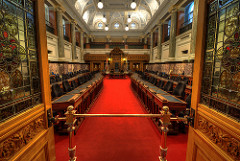 Today in the legislature I rose to celebrate the success of British Columbia women’s teams in the Canadian Interuniversity Sport championships. Below are the text and video of my statement.
Today in the legislature I rose to celebrate the success of British Columbia women’s teams in the Canadian Interuniversity Sport championships. Below are the text and video of my statement.
For information, a team being presented at the bar means the front doors to the chamber are opened and the team is brought in as far as the bar (shown in the image to the right). Introductions of individuals in the viewing gallery are frequently done.
Text of my Statement
Last week in the House, we were introduced to the UBC Thunderbirds, the winner of the 2015 Vanier Cup. The next day we celebrated the 99th anniversary of the adoption of legislation by this Legislature providing women the right to vote in B.C. On that day we celebrated how far we have come. These were indeed great events to celebrate. Today I’d like to expand the celebration of B.C.’s success in the Canadian Interuniversity Sports, or CIS sports championships.
In 2015, UBC’s women’s field hockey team won their fifth straight CIS championship. This year’s final game was a nail-biter. UBC was down 2-1 to the UVic Vikes with literally seconds left in the game when UVic was forced to defend not one but two penalty corners. UBC scored on the second penalty corner as time ran out and subsequently won the penalty shootout Both players of the game — UBC’s Sarah Keglowitsch and UVic’s Lizzy Lizzie — were from Shawnigan Lake. There must have been something in the water there.
In women’s soccer, 10 of the past 14 CIS championships have been won by B.C. universities, led by Trinity Western’s five titles, UBC’s four titles and UVic’s single title. UBC won this year’s final game 3-0 over the team from Trinity Western University.
UBC women’s volleyball team won six consecutive titles from 2008 to 2013. This past year three of the top four teams in the country were from B.C.: Trinity Western, UBC Okanagan and UBC. In women’s basketball, from 2002 to 2010, B.C. universities won nine consecutive national titles: SFU five, UBC three and UVic one.
In the last 20 years, precisely four teams have been presented at the bar: the B.C. Lions of 2006 and 2012, the Victoria Shamrocks in 2015 and UBC’s football team in 2016. As far as I can tell, a women’s sports team has never, ever before been presented at the bar. We still have a long way to go.



